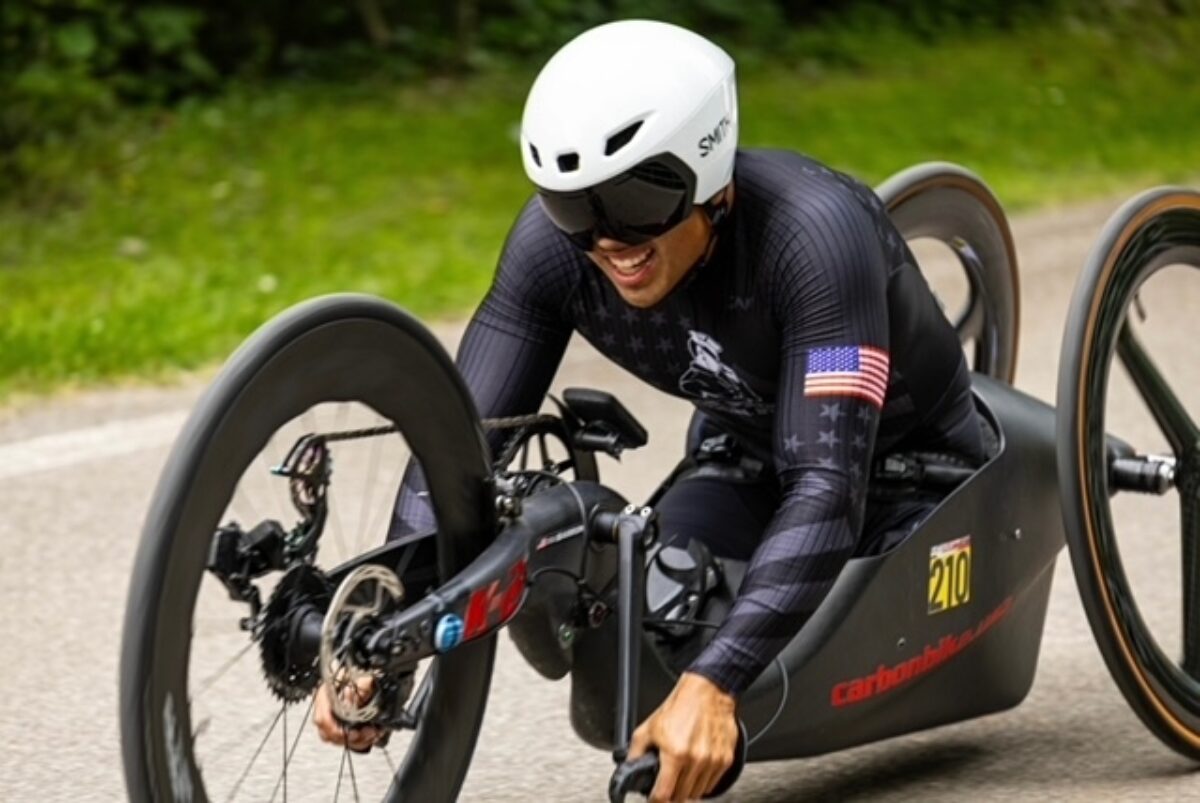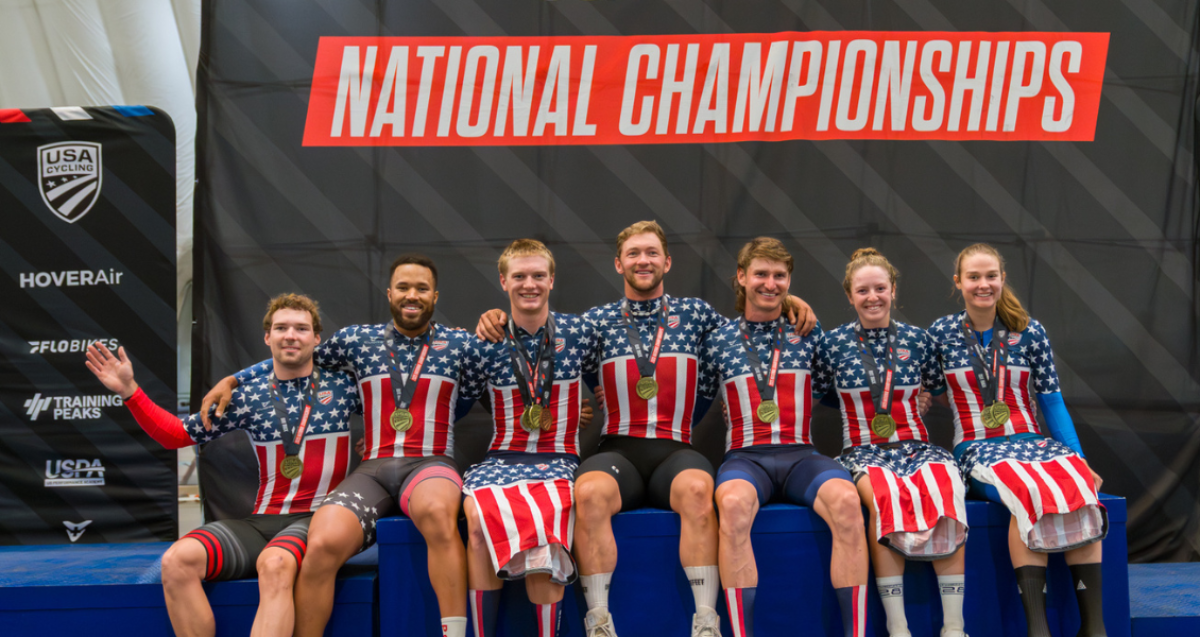As a former U.S. Marine, Josue Barron has found a new application to the credo of improvise, adapt and overcome.
The key message? Find a way.
Barron is doing just that. Having only started handcycling after the worst of the COVID-19 pandemic had passed, Barron is now one of the top U.S. performers. He proved that in May, when he reached his first world cup podium.
That result, in turn, secured his spot on the U.S. team for the 2025 UCI Para-cycling Road World Championships taking place on Aug. 28-31 in Ronse, Belgium.
“I’m very excited because it is probably one of my highest athletic accomplishments,” Barron, 35, said from his home in Temecula, California, which is just up the road from Marine Corps Base Camp Pendleton. He lives there with his wife and four children, all under the age of 10.
“To be training for four years consistently, I finally get to see some type of result.”
Barron didn’t race in the world cup opener May 1-4 in Ostend, Belgium, so he got the sense that few were expecting him to step into the limelight two weeks later in Maniago, Italy.
Instead, he came out strong in the time trial MH5 event to secure the bronze medal. The following month, he was announced as one of seven men to make the U.S. squad for Ronse, including five Paralympians.
“To do that well, it showed all my work has paid off,” he said. “I would say I’m more of an underdog. This is the first taste my competitors got of, ‘He’s really coming on.’
“I was the dark horse, and I like that name, because my Marine unit was called Darkhorse.”
Barron was a member of the legendary 3rd Battalion, 5th Marine Regiment, known as the Darkhorse Battalion. He’s already thinking in those terms when it comes to 2028 as well.
Barron is originally from Los Angeles, where his family still lives. Now he’s dreaming of going back in three years for the Paralympic Games.
“I think it would just go full circle,” Barron said. “I came out of L.A. and went into the military and got injured, and to go back to L.A. as a Para athlete, I can inspire kids in the neighborhoods that I lived in.”
Since he started handcyclng, Barron has learned plenty about race strategy. For example, he’s learned how to stay in the zone at the beginning of a race and not go too hard.
Sure, your adrenalin is pumping at the outset, but you might not realize you’re using up all your energy. That can come back and bite you.
“Time trials are usually 10 to 12 miles, and you don’t want to waste all your energy in the beginning,” Barron said. “Stay in a good zone in the beginning and then pick it up little by little.”
Of course, Barron has his own specific challenges with which to contend. In addition to losing a leg in his overseas service in Afghanistan in 2010, he also lost his left eye and has a scar on the cornea of his right eye.
That proved to be challenging March 29 in Huntsville, Alabama, at a qualifying event to determine Team USA’s roster for the two world cup events, in Ostend and Maniago.
The weather in Huntsville was crummy that day, lots of heat and rain, and those are conditions that Barron does not relish.
“I wear a helmet and a shield, and then my prescription glasses,” he said. “I get real nervous when it rains because when you’re going hard, the shield gets foggy and the rain makes the glasses wet.
“I know I’m going to struggle, but over time, it’s like, whatever. I have to race.”
The challenges don’t stop there. Balancing training with family can be difficult, he said. Sometimes Barron can’t go places with them because he has to train. That, he said, has been the most challenging part of his journey, and he works hard to navigate that.
To that end, in an average week, he’ll do about 13 hours, or 200 miles of training. But he only trains Monday through Saturday. Sunday is for family.
As far as his advice for others that are new to Para-cycling and how to stick with it, he said to bear in mind that the support for newcomers is at a premium.
“It’s a small field, so there’s not a lot of support and sponsorships … ‘We want to invest in you,’” he said. “I had to figure out all my funding, how I’m going to get to some of those races. It’s expensive.”
But like the Marines, adopting an attitude of improvise, adapt and overcome will always win the day.
“If they can stay committed and go through all the hurdles, it will come,” he said.
Gregg Voss is a journalist based in the Chicago suburbs who has been writing sports for newspapers and magazines for more than 20 years. He is a freelance contributor to USParaCycling.org on behalf of Red Line Editorial, Inc.

